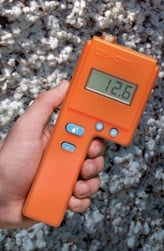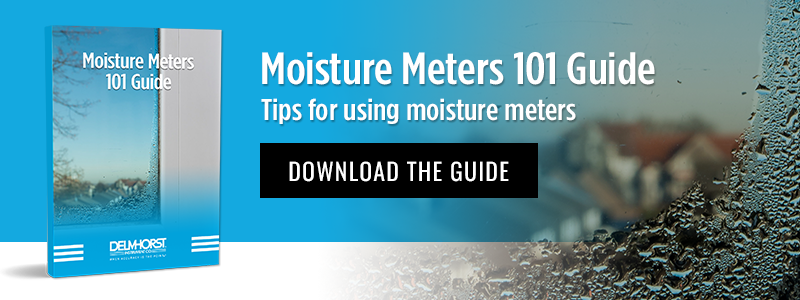Moisture meters are an integral tool for many professionals for one reason or another. Farmers can use them to optimize soil irrigation for their crops, restoration experts can use them to track dry-out progress, and manufacturers can make sure their wood has been sufficiently cured prior to distribution.
 Like any tool, moisture meters may require occasional repair and replacement due to wear and tear. However, there is another reason that you might want to replace your current moisture meter—to upgrade it for a newer model that has more capabilities.
Like any tool, moisture meters may require occasional repair and replacement due to wear and tear. However, there is another reason that you might want to replace your current moisture meter—to upgrade it for a newer model that has more capabilities.
Before you rush to upgrade your current moisture meter with a newer one, it’s important to consider whether or not you actually need to.
Some signs that it’s time to upgrade your moisture meter include:
1: The Newer Model Has Features That Will Actually Make Your Work Easier
One of the most common reasons for upgrading your current moisture meter and replacing it with a new model is that the newer model has a new feature that’s missing from your current model. However, it’s important to consider if the new feature will improve your work in a meaningful way.
Features like species and temperature corrections, the ability to store/export moisture measurements, and improved moisture detection ranges can all help to make a moisture meter more convenient for professionals to use.
For example, wood species corrections can allow the meter to adjust moisture readings based on the species of wood being tested. The user just has to change a setting in the meter before taking a measurement. Without this feature, such corrections would have to be made manually each time using either a chart or a mathematical formula to account for the differences in the physical properties of different species of wood.
The ability to store and export moisture measurements with a date and time stamp can be useful to flooring contractors, restoration experts, and others who may need to present evidence that they actually took those measurements. This can help to avoid disputes with clients or prove that they followed specific industry guidelines (like ASTM F2170).
2: The Older Meter is Not Providing Accurate Moisture Measurements
Over time, a moisture meter can lose accuracy because of wear and tear or other issues. If your current meter is an older model that has lost accuracy and is out of the warranty period where you could have it repaired or replaced for free (or reduced cost), then it may be time to consider upgrading to a newer, more accurate model.
You should be able to test the accuracy of your current meter by using a specially-designed testing tool such as a moisture content standard (MCS) or moisture block—if there is such a device for your model of moisture meter.
3: Your Current Meter Breaks Too Easily
There’s an old saying, “you get what you pay for.” This often holds true for moisture meters, as people who buy cheap meters to save a few bucks often find themselves continuously having to buy replacements because the older ones keep breaking.
If you find that your current moisture meter of choice is continuously breaking on the job, then it may be time to upgrade to a tougher, more rugged meter. In some cases, the higher-quality moisture meter can actually have a lower total cost of ownership simply because it won’t need to be replaced as often as a “cheaper” meter.
The Importance of Finding the Right Replacement
There are many reasons why you might want to upgrade your current moisture meter with a newer model. However, it’s important to find the right replacement.
The right moisture meter will provide some kind of improvement over your current one—whether it’s better accuracy, faster measurement speed, increased durability, or some new function that makes your work easier.
Have questions about what to look for in a new moisture meter? Contact Delmhorst today for answers to your questions about the different kinds of moisture meters and how you can use them.

Comments